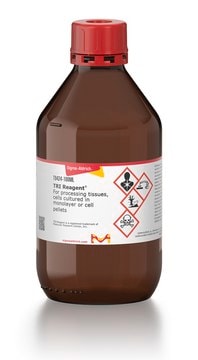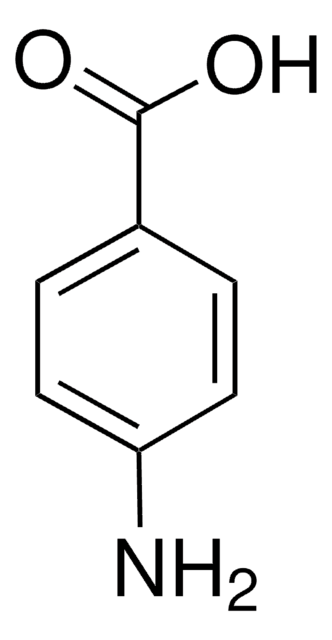205222
Sodium cyanide
ACS reagent, ≥95.0%
About This Item
powder, crystals or chunks
Produits recommandés
Qualité
ACS reagent
Niveau de qualité
Densité de vapeur
1.7 (vs air)
Pression de vapeur
1 mmHg ( 817 °C)
Essai
≥95.0%
Forme
crystalline powder
powder, crystals or chunks
pH
11-12 (25 °C, 49 g/L)
Pf
563.7 °C (lit.)
Solubilité
water: soluble(lit.)
Traces d'anions
S2-: ≤0.005%
SCN-: ≤0.02%
chloride (Cl-): ≤0.15%
phosphate (PO43-): ≤0.02%
sulfate (SO42-): ≤0.05%
Traces de cations
Fe: ≤0.005%
Pb: ≤0.005%
Chaîne SMILES
[Na]C#N
InChI
1S/CN.Na/c1-2;
Clé InChI
RTVFYQXEHKQMKO-UHFFFAOYSA-N
Vous recherchez des produits similaires ? Visite Guide de comparaison des produits
Description générale
Application
- α-amino acids
- Prussian blue (cyanide pigment)
- nitriles, via reaction with primary and secondary chlorides
Mention d'avertissement
Danger
Mentions de danger
Conseils de prudence
Classification des risques
Acute Tox. 1 Dermal - Acute Tox. 1 Inhalation - Acute Tox. 1 Oral - Aquatic Acute 1 - Aquatic Chronic 1 - Met. Corr. 1 - STOT RE 1
Organes cibles
Thyroid
Risques supp
Code de la classe de stockage
6.1A - Combustible acute toxic Cat. 1 and 2 / very toxic hazardous materials
Classe de danger pour l'eau (WGK)
WGK 3
Faites votre choix parmi les versions les plus récentes :
Déjà en possession de ce produit ?
Retrouvez la documentation relative aux produits que vous avez récemment achetés dans la Bibliothèque de documents.
Les clients ont également consulté
Notre équipe de scientifiques dispose d'une expérience dans tous les secteurs de la recherche, notamment en sciences de la vie, science des matériaux, synthèse chimique, chromatographie, analyse et dans de nombreux autres domaines..
Contacter notre Service technique












